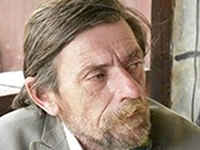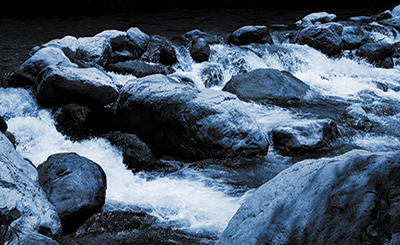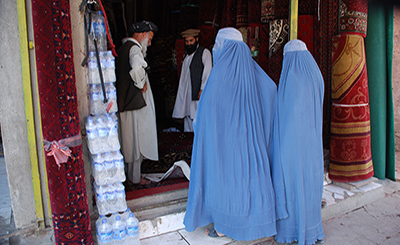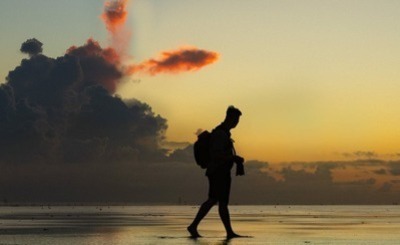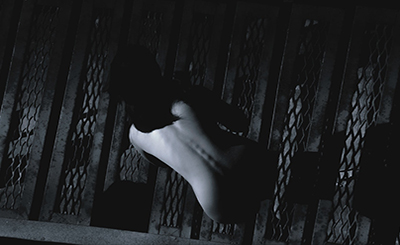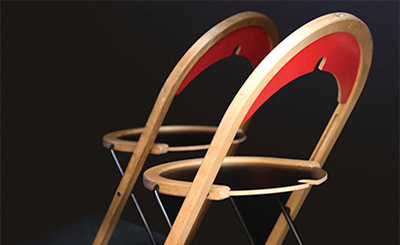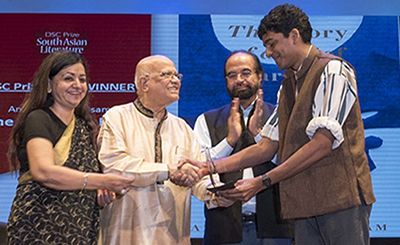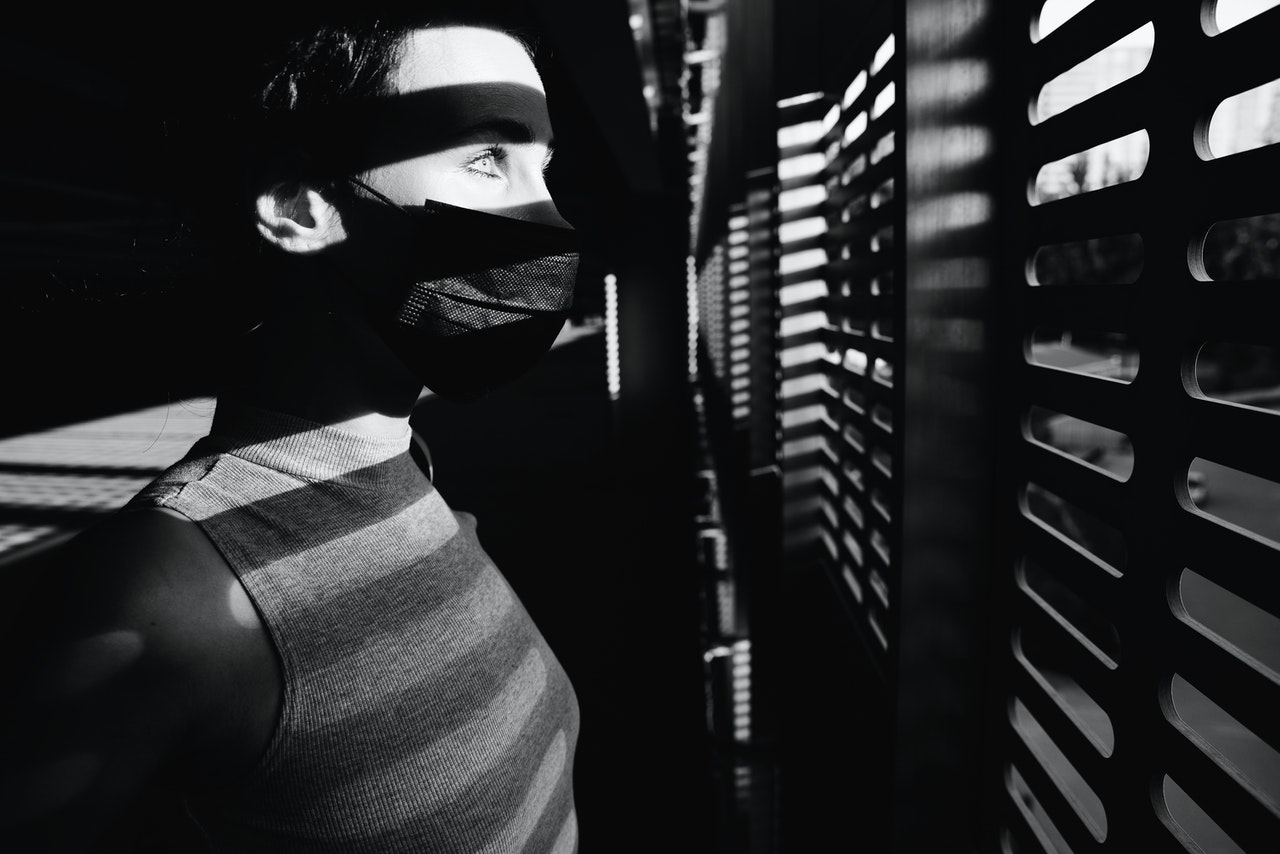
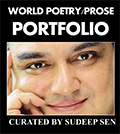
Poems by the Bulgaria-based writer, translator and lecturer as part of World Poetry/Prose Portfolio, curated by Sudeep Sen
Quarantine Sonnets
1.
Not far from where the Arabic trader’s son burnt
love letters ‘to be sure they reach her heart’,
we sit outside a quiet bar on a quiet street.
The market’s long shut, only late trams shriek,
but few masked faces will turn to look out.
This is how we’re learning slowly to adapt.
Over cobbles warm from the spring day’s heat,
a fat dog lumbers, wide snout gripping a rat.
She lays it beside our table as a cautious gift.
Does she want us to accept or to negotiate
exchange, a range of deals and options?
It’s harder to keep things in proportion
when statistics repeatedly assault us.
This is how we’re learning slowly to adapt.
2.
Only yesterday a long climb brought us out
onto a shaded plateau, the air cool
from a waterfall — and all
the weeks’ silences seemed to dwell
in rows of hollows worn into the walls
of sandstone and the shifting light.
The prospect acquired a weight,
unsuspected. Seen from this height,
the remote small roofs of remoter lives
emerged through the canopy of leaves.
Then, as we started to descend,
voices distanced behind us - and,
beyond the rose-pink banded crags,
thunder grumbled its idle threat.
3.
Pale bouquet of wildflowers in a vase —
a reminder we’re seeking reminders where we can.
Nostalgia for all that came before perfects us
in our restlessness — and the long days
sequence themselves without our doing:
an end to endless coming and going.
In the absence of a prospectus or a plan,
we’re distracted by boxes piled beside a bin
or ivy — its roots split by a gate — raising
a pair of green hands on the neighbours’ wall.
Even bird species promise to take me back -
and would until the pale bouquet recalls
how veils are always drawn behind our back:
the only way on is through the ordinary dark.
4.
Low sky, grey after rain,still lours.
They’ve been sat outfor hours
across the way. The sunshade
on their balcony has faded
each summer to a paler green.
This year it has reached
the colour of early autumn leaf
or new fronds of jasmine below
their cracked French windows.
What they’re watching is the time,
where it goes and where it won’t.
They’re still until, for a moment,
they stand, as if to greet
first rays of returning sunlight.
Sofia, June 2020
A Definite Article
Something swings beneath the ceiling fan.
It’s early October and the breeze wants distraction.
A skylight in the 1970s, say. Or the stern display
of titles on a bookshop shelf. That café where
a line-end wasn’t possible. We were mad
for last drinks — an extension of something
that clouded the sky beyond gold domes.
I would rather not be so sure of doubt.
A coach parks up beneath a concrete façade
and an airliner does its best to disturb
music fed through wooden hut speakers.
The old palace gleams with its insistence
and the queue outside the off-licence
is entirely made up of policemen.
But then that’s home and we know
which crossings to make while the roads
leap towards bridges over highways
and on a bus to some remote district
there’ll be a minor incident — because
the everyday is an adjective
becoming a noun and
a single supple suffix does it.
A skylight, in fact. Or a balcony.
Or a red star lifted by helicopter,
removed in the interest of securing
a role in the future, that old repetition.
Self-Contained
I don’t know about you
or what you’re thinking
even though here we are
on either side of the bus
going somewhere I’ve not been
in a country of burning stubble
whose language I’ve not learned
or its currency — where
on this earth do we begin?
Not so far back, in a lay by,
a crashed car’s flames furled,
you shook a stub from a pack
and hurriedly smoked.
I rolled one slowly, licked
the strip of glue and lit
the twisted tip: I’ve grown
too sure of myself.
I met an insular grin.
By the fibreglass toilet,
a couple record complaints
into their mobile phones -
the landscape, weather,
food, ammonia smell -
expectations disappointed
spreading towards the horizon:
that will be out in the world
before we even arrive.
Had we but courage enough
and time, perhaps we’d ask:
they’re right in front of you,
phones pressed to the window,
recording opinions,
such ruined buildings.
I’m convinced we’d laugh.
Or that’s what I’m thinking —
I don’t know about you.
Reverse Mirror
Through the branches’ framework,
it's like another sun’s moved in.
The sharp light cuts
between the cement blocks,
which themselves are cutting the horizon:
a yellow radiance glows
through our human valley,
where at night our personal hamlets
hold their place without fear,
but with rows of orange lamps.
Today, though, the clouds are turning
faster than wheels, flying
from south to north, Vitosha to Hope.
To be a naturalist among
the extravagances of nature:
what cries, roars, what beasts
are rising outside the borders
of silently emptying buildings?
The neighbour would reply,
it would draw me back,
but already the tide of human noises
is re-establishing itself and spills
out of the long valley to the forest
which we build and re-build
endlessly, as if we don’t know
whether we can succeed.
Let the hawk stay honest.
Under the cloud’s scrawl we’re expecting
either a threatening storm or a wild party.
Above the ruined store shed
the stars are gossiping about the sun.
Everyone strives for love, but lethargically,
strangely lethargically, like tramstop ghosts.
These aren’t premotions, just birds
that wind and twist and retreat.
All day I could listen to the frogs
until they get too raucous:
their little pistons drum on the marshes.
Who doesn’t wish for reconciliation, peace?
The question comes round in the afternoon,
when everything begins to go out.
Nothing happens. The warmth sucks in breath.
Lazily one stork is crossing a blue untouched sky.
A Natural History
Bearing my blunt head
up broad, dusty stairs,
I’ll translate these labels
best I can, recalling
how, stuffed and upright in his case,
he’s mocked with the medal they gave
the man who shot the biggest bear
killed in all Europe that year.
What passes for opinion passes
into knowledge: too late
for those who come late,
sourced for science and display.
As if, had we asked, the worms
coiled in their jars might yet forgive.
*
Allow for rocks’ endurance,
their implacable solidity.
Geologist-collectors look down
on malachite and chalcedony
split and polished adroitly,
more stained glass than leather.
Knuckles of quartz,
splintered miniature chapels,
articles of faith,
tectonic miracle relics:
and looking for the unearthly,
there is in this one at least:
residual shards of a meteorite
that crossed how many light-years of space.
*
The gallery of dead birds
keeps its glass eyes on us.
Colours fade unceremoniously.
Naming a species comes as relief.
And would they have survived
not being museum’d
for how long on the margins?
Temptations to allegory perch
in fabricated habitats.
Storks and cormorants stalk
invisible prey, but songbirds —
so many songbirds are pinned out
it’s hard to tell between them.
But, yes, that might be a nightingale.
From the Women’s Market
1. A Crossing Point
We come in or out here,
overhearing agreements
or questions being asked
in sunlight patches,
chiaroscuro.
Here at the gateway to
a single market,
a common market,
a geometry of trade
and exchange.
Dealing in such abstractions
cannot be sustained
when against them we place
things more solid —
boxes, onions, grapes.
And these seeds on display
stack like sand-filled souvenirs
mimicking time’s grainy strata.
What deals are struck here,
what practicalities —
and if only for moments
lived cross-currents intersect.
2. A Gathering Point
Pigeons eyeball each other
while they drink or bathe
in dust and water.
They are at rest until
minor tremors in their territories
disrupt their ad hoc hierarchy.
Above them, in another world,
we practise our rituals,
our strategies of deferment –
a reassuring conversation,
an uneasy reflection –
the day is almost halfway through.
And each comes to drink
at the fountain,
they can’t not reveal
some part of themselves:
whether they bend
to the faucet to drink,
fill an empty coffee cup
or try to gather the flow
in their open palms.
3. Monument
As far as I recall
we made it to here
six years ago
but the stalls
were empty that time
Only now it’s 12.53
on a Thursday
in another September
and even the tomatoes
are catching the light
as if they’re trying to prove
they might be regarded
as beautiful too.
Because it’s lunchtime
there are different bargains
to be struck between hours
of work or not-work,
and circumspection gives way
to a sense of purpose
and purpose gives way
to circumspection.
How cities move within themselves
eludes chaos theory
and flows among fixtures
we’ve placed to pin it down –
church, school, monument.
26 September 2019
Zhenski Pazar, Sofia
Comments
*Comments will be moderated



